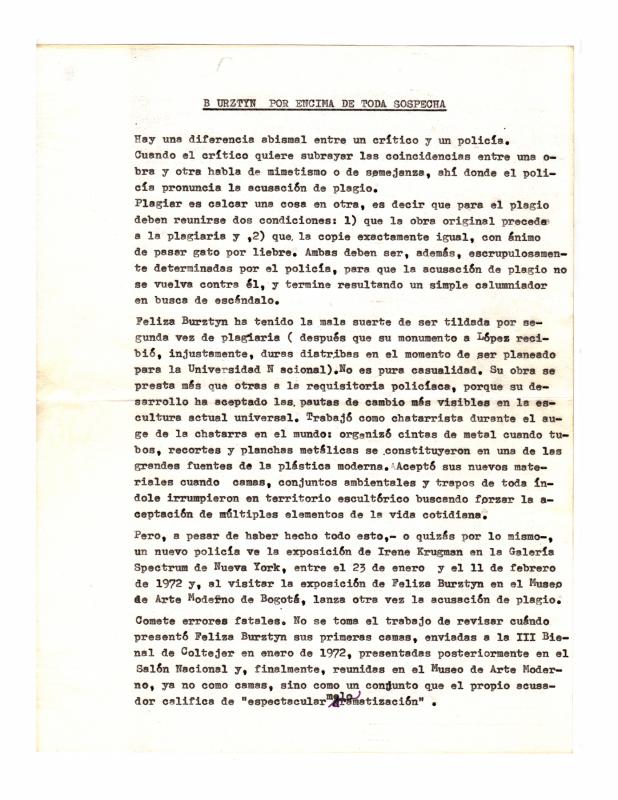In this article, Colombian critic and art historian Álvaro Medina (born 1942) accuses Feliza Bursztyn (1933–1982) of copying the idea and form of a work by a North American artist. That accusation was not only aired on national radio, but also published in a number of Colombian newspapers (specifically Vanguardia Liberal and El Diario del Caribe), giving rise to controversy in the Colombian art scene. Medina casts doubt on the honesty of the work of an award-winning Colombian sculptor. There were a number of responses to this article, evidencing different positions [see “Análisis de la Obra de Feliza Bursztyn”, doc. no. 868498]. The harshest clash of opinions was between Medina and Marta Traba (1923–1983) [see “Bursztyn por encima de toda sospecha,” doc. no. 1075979]. Regrettably, this article, as well as Traba’s responses, turned into a petty childish dispute that failed to delve into complex concepts like copy, originality, appropriation, and others that would have been capable of enriching a conversation even if its origin lay in a flat accusation.
It is striking that Medina demands originality in the seventies, a decade that witnessed the questioning, challenging, and undermining of belief in the uniqueness of the producer in the fields of literature—with the work of Jorge Luis Borges (1899–1986), for instance—and art—with the rise of photography and works by Marcel Duchamp (1887–1968) and Andy Warhol (1928–1987), to mention just a few. What was called into question was the magic aura surrounding creation as a precious gift granted by Olympic muses. Medina does not argue, he accuses, and his facile attack turned into a polemic. In the view of French philosopher, sociologist, and historian Michel Foucault (1926–1984), anyone who makes use of the rhetorical form of controversy is “shrouded in privileges that he possesses from the outset and will never agree to question. On principle, he has the rights that authorize him to declare war and to turn that struggle into a just cause; the person he confronts is not a peer in search of truth, but an adversary, an enemy who is not well, is harmful and constitutes a threat.”


